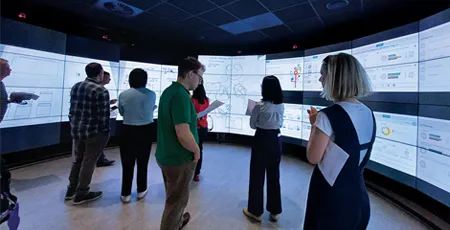Making all voices heard
Why social mobility, friendship and voice still matter for marginalised communities today.
Social capital networks continue to place some groups at an advantage within society, says Nelarine Cornelius.
I trace much of my interest in social justice to my student days at Manchester University where, alongside my doctoral studies, I also immersed myself in the work of the city’s wider community groups.
I particularly remember working at a Saturday school at the West Indian Organisations Community Centre which catered for students whose abilities were, for whatever reason, not take seriously and whose aspirations were ignored. Although these students largely came from the West Indian community, they were also from white working-class communities too. What struck me most from this experience was how truly marginalised the voices of some people can be in society. It has stuck with me ever since.
Fast forward a generation and ensuring marginalised voices are heard is just as pressing today and, strikingly, here in the UK many of those marginalised voices belong to young people. As Greater Manchester Mayor Andy Burnham said recently, the number of young people not in education, employment or training ('NEETS') has, in his view, reached unacceptable levels because Whitehall is failing to listen and respond to their needs. Latest figures suggest the number of NEETS has reached almost a million. Many young people are simply falling through the cracks.
Social mobility
Time and again the significance of social mobility arises when we seek to ask why this is happening and why some voices are so marginalised. In short, class and social mobility still really matter in the UK and determine how you get on in life.
Social capital networks, which transmit across generations, are particularly important because they place some social groups at an advantage within a society and also provide powerful signals to others regarding the status of these social groups in society.
As US author Robert Putnam, who looked at the importance of social capital in the US in his book 'Bowling Alone' put it: "Community connectedness is not just about warm fuzzy tales of civic triumph. In measurable and well-documented ways social capital makes an enormous difference in our lives…social capital makes us smarter, healthier, safer, richer, and better able to govern a just and stable democracy." In other words, you don’t have voice within society unless you have strong social capital.
Friendships
Recent research here in the UK has shed further fascinating light on the significance of social capital. For instance, a RSA/BIT* study based on an analysis of Facebook relationships found that friendships across socioeconomic lines have a strong relationship with future earnings and social mobility.
Intriguingly, the report looked at the extent to which friendships bridge economic divides in different parts of the country. What it found was that friendships across economic lines are more common in the South of England, especially in areas around London. In contrast, cross-class friendships are less common in regions such as parts of northern England such as Manchester. The key point is that communities with higher rates of friendship between low- and high-income individuals have higher rates of upward mobility.
Equality of opportunity
Social mobility is something we should all be interested in, because it is linked to equality of opportunity which can be measured in earnings, income, occupation, and other wellbeing dimensions.
In our current turbulent world social mobility is under attack like never before and rights are under pressure too. Indeed, it remains all too easy to erode rights even when they are supposedly enshrined in the law. Senior leaders within businesses and organisations may say the right things about protecting rights and speaking out for the marginalised voice, but are they really capable of making the journey?
Too often policies are circumvented and ignored, poor management behaviour towards employees goes unpunished, HR is simply used as a rubber stamp, and silence and silencing in the face of wrongdoing is seen as preferable to addressing these challenges that employees face.Starting to really address these issues and internal social responsibility would go a long way to helping address obstructed opportunities and social justice challenges.
Nelarine recently gave a lecture at AMBS on behalf of the British Academy on reimagining business as a force for good, listen to the lecture >>
*RSA/BIT – Social capital in the UK: evidence from six billion friendships
Tags:






